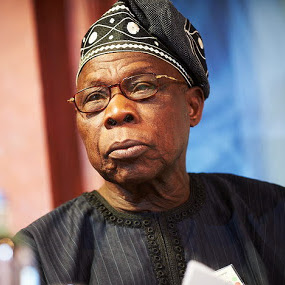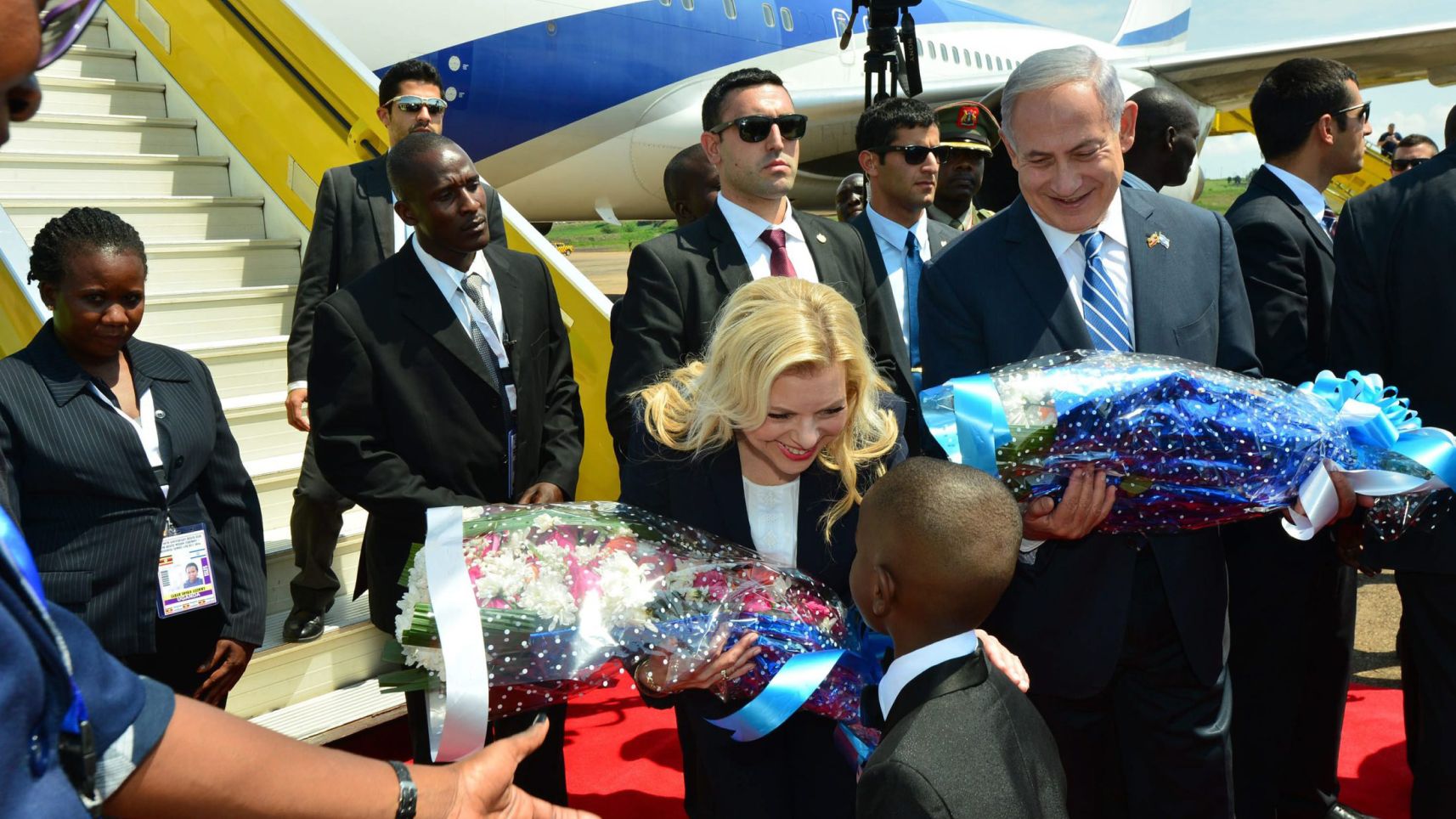News
Israel's Warming Relations With Africa Survived a UN Vote. But Will Further Political Tension Break Them?
The mutual advantages of closer Israel-Africa economic ties are clear. But Israel also hoped better relations with Africa would offer diplomatic protection and alliances. That contention is now being tested, and not just at the UN.

Director, The Brenthurst Foundation

Former President of Nigeria; Chairman and Advisory Board Member Emeritus, The Brenthurst Foundation

South Africa’s ruling African National Congress (ANC) just "unanimously resolved to direct the South African government to immediately and unconditionally downgrade the South African Embassy in Israel to a Liaison Office" as an "expression of solidarity to the oppressed people of Palestine," in the wake of U.S. President Donald Trump's decision to recognize Jerusalem as Israel's capital. Furthermore the ANC called on the Palestinians "to review the viability of the two-state solution."
U.S. President Donald Trump threatened to cut off financial aid to countries that vote in favor Thursday of the UN resolution rejecting Trump's recognition of Jerusalem as Israel's capital. Five African countries are on the list of top ten states receiving U.S. aid. In the event, despite the resolution passing by 128 votes to 9, the African states of Benin, Cameroon, Equatorial Guinea, Lesotho, Malawi, Rwanda, South Sudan and Uganda all abstained, which was a diplomatic victory of sorts for Israel.
In September, the Israel-Africa summit scheduled for October in Lomé, Togo was cancelled. According to Israel, this was due to widening unrest in the West African nation. Official Palestinian sources claimed that a boycott campaign was instrumental in its cancellation. According to the Johannesburg-based Afro-Middle East Centre, under half of all African nations were likely to attend.
Does this mean that the contemporary Israeli Africa diplomatic 'push' is doomed? If not, how might it be engineered in a mutually productive and sustainable manner?
Prime Minister Benjamin Netanyahu declared this July that, "Israel is coming back to Africa; Africa is coming back to Israel." He has made three visits to the continent in the last 18 months. In contrast to the mooted South African downgrade, many African countries are strengthening their relationships with Israel.
In some respects, Israel has never left Africa.
In the 1950s and 1960s, Israel’s technical assistance in agriculture, youth training, medical infrastructure and industry to Ghana, Sierra Leone, Ivory Coast, and Nigeria among others in Africa led Newsweek to describe the relationships as "one of the strangest unofficial alliances in the world."
Julius Nyerere dubbed Gold Meir the "mother of Africa". Israeli Prime Minister Meir identified deeply with the continent: "I am prouder," she said of the country’s international relations co-operation programme, "of the technical aid we gave to the people of Africa than I am of any other single project we have ever undertaken." She explained that it "was not because it was just a policy of enlightened self-interest but because it was a continuation of our most valued traditions."
As a state that had quickly emerged from the ashes of World War II, and made rapid progress in spite of minimal resources, Israel had resonance with the move towards decolonization and African ambitions. This example remains pertinent amidst Africa’s economic challenges.
Israel has, since 1960, more than quadrupled its average income per capita (in real terms) to nearly $34,000. Sub-Saharan Africans have increased their average wealth just 1.5 times over the same period to just over $1600.
In the aftermath of the October 1973 Yom Kippur War, the continent became a diplomatic battlefield between Arab states and Israel. Most sub-Saharan countries severed diplomatic ties with the Jewish state, in compliance with resolutions of the Organisation of African Unity and given the promise of cheap oil. Only Malawi, Lesotho, South Africa and Swaziland maintained formal relations.
Things have changed since, as generations and interests have waxed and waned. Now there are official Israeli diplomatic ties with 37 of 49 countries south of the Sahara. Roughly half of Israel's Mashav international aid budget, some $100 million, is reportedly spent in Africa.
There appear two main motives behind Netanyahu’s push.
First, Israel is keen to diversify its pattern of trade. Currently there is a lot of upside in relations with Africa, given Israel’s total trade with the continent is less than that it enjoys with Vietnam alone. And, second, for Israel, better relations with Africa offer diplomatic protection and votes, especially at the United Nations. That contention is now going to be tested.
There’s plenty of common interest. As the 'Start-Up Nation', Israel has a special expertise in high-tech, and in other technologies such as drip-feed irrigation and intensive agriculture which can benefit Africa. The venture capital environment that gave rise to the tech industry also offers a useful model for African countries attempting to fund and scale up good ideas. Israeli universities offer related reservoirs of appropriate knowledge and means of African capacity-building.
As Africa doubles its population over the next generation, its demands in the areas of food security, electricity provision, and logistics management will quickly ramp up. Africa also has the fastest growing Christian population world-wide, an important and increasingly influential constituency. There are shared climatic challenges, as hinted at by Israel’s terrestrial link with the continent. And as African cities expand to house the majority of this growing population, they will demand smarter, digital responses, including the identification and mining of big data and smart urban security.
The mutual benefit is obvious. For example, Israel achieves a rate of grain spoilage at just 0.5% compared to a global figure at least 20 times greater. Israeli cows produce 13,000 litres of milk annually, compared to 9,000 in the US and 6,000 worldwide. Israel is the site, today, of the R&D centres of more than 200 global high-tech companies, with at least domestic 800 companies in each of the fin-tech and defence sectors alone.

Israel’s start-up success is a lesson for Africa in how to attract global business, through a combination of bright minds, government subsidies and private sector funding. This has provided an 'eco-system' for high-tech.
What’s the ‘eco-system’ for a more productive African-Israeli relationship?
It’s fairly straightforward to understand the likely nature of Israeli offerings from agro-technology to digitized government services, off-grid renewable energy solutions and skills, and the African advantages which would flow as a result.
Less clear is the necessary narrative around which the relationship can be explained and grown. To be meaningful, and long-term, it will need to be more than commercially transactional. There will need to be a political tailwind and a narrative, currently absent.
Some African governments will understandably find it difficult to get beyond the ritualism of the Arab-Israeli relationship, as hinted by the Togo boycott and articulated by South Africa's move.
Trust with Africa will have to be built, in part through the structuring of a system of mutual benefit, of joint learning that goes beyond simply technological exchange into the political arena, where the dialogue can include the Israeli-Palestinian impasse.
In particular, Israel will have to take care to sit on the right side of African history in terms of prioritizing relations with democratic regimes, not least since it holds these attributes dear.
For its contemporary diplomatic push to succeed, Israel will have to seek to be an ally and friend of Africans and not just African governments.
This article can also be found in Haaretz.

